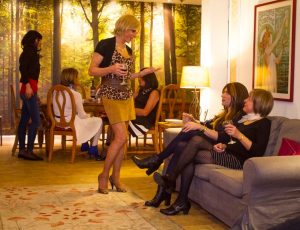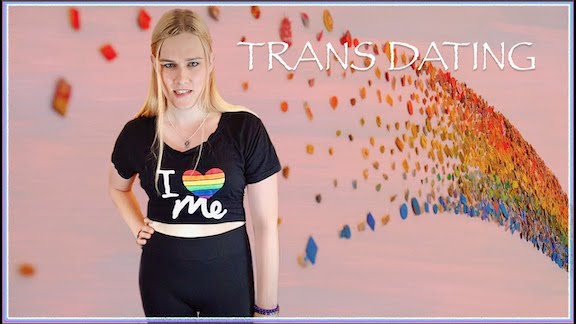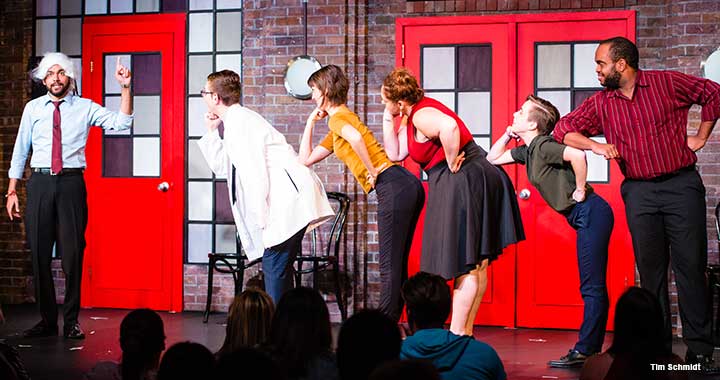Trans Loneliness
The US Surgeon General recently reported significant increases in loneliness. But the developers of this report never asked us— and we are experts on loneliness. Judging from the small number of transgender people who have come out, compared with the 2% of the population who are trans, my extended experience with loneliness is similar to that of many other trans people. The problem of gnawing transgender loneliness remains. Loneliness is not necessarily being physically alone. It is the feeling of isolation when your social connection needs are unmet. This feeling negatively influences your thinking. It is not solitude, the positive feeling that results from voluntarily being by oneself to think. More than ever, now that the transgender community feels under siege, you need to make social connections to feel better and maintain your health by reducing loneliness.
I knew that I was transgender from the age of five. I told my mother. And from her reaction, I decided never to divulge to anyone else that I was a girl and not a boy. To her dying day, she watched me like a hawk to find any sign that I was behaving as a girl and would get angry if she thought she detected something. It created a barrier between me and my mother.
But, of course, I never stopped crossdressing in private when it was safe. Once crossdressed I was lonely. Sitting in far-away hotel rooms was not satisfying after a time. I wanted to interact with others who did not care that I was transgender. This continued throughout my life and career. The stakes were higher and the risk of discovery was real, but I continued.
Eventually, I decided that the loneliness had to end and started attending clandestine support groups in Detroit, DC, and Los Angeles. I found out about them through primitive social media. Individuals put up dial up “bulletin boards” long before the Internet but they were good enough to provide information on these clandestine groups. CompuServe and other networks provided business connections but their connection services beyond business became wildly popular. I met my first transgender person in-person through CompuServe. The groups started in the 1970s as spinoffs from the “support group” movement. Unlike other support groups which sought to rid themselves of disease, such as alcoholism, these trans groups sought to help people crossdress safely and effectively. I could never fully join these groups because my job required me to report the groups of which I was a member. But they tolerated my situation and even made up a new membership category of non-voting “contributor”, so I could get regular communications.
 As things opened up for transgender people in the new century, I came out more and more, started my own business and eventually formed some lasting friendships, mostly with other transgender people. But loneliness was still around, provoked by absence of holiday family get-togethers and infirmity/death of my family members. One support group to which I belonged (TransDecatur) would sponsor Thanksgiving and Christmas meal get-togethers.
As things opened up for transgender people in the new century, I came out more and more, started my own business and eventually formed some lasting friendships, mostly with other transgender people. But loneliness was still around, provoked by absence of holiday family get-togethers and infirmity/death of my family members. One support group to which I belonged (TransDecatur) would sponsor Thanksgiving and Christmas meal get-togethers.
Experiencing loneliness is painful by itself, but it also contributes to the scourges of depression and suicide ideation. Having adequate social connections will allow you to avoid premature death by about 50% in any given time interval. Loneliness is an even greater death risk than drinking, smoking, obesity, and air pollution. It contributes to at least major disease states including cardiovascular problems (Surgeon General report, Chapter 2). It does this by disrupting heart, hormone, immunity, and gut physiology.
Transgender people have difficulty finding friends and lovers. Some people reject us because we are transgender, even in online interactions. Negative interactions may provoke feelings of loneliness. But persistence pays off. I was fortunate to find someone who came to love me. (After living together for a year, we are getting married this summer).
Due to several possible factors, it looks like the general population is now catching up with us with respect to loneliness. Studies in the US, Canada, Spain, Norway, and the UK all report acute loneliness among transgender people. Statistics indicate that the time spent by the broader population in social connection with family, friends and others has declined for a couple of decades, even before the COVID epidemic (ibid, page 14). A third of the general population is affected by loneliness and 8% are affected severely.
So, what should be done about loneliness? The Surgeon General report lists some things that could be done. Predictively, they mostly involve leftist wokie government policies rather than encouraging people to take responsibility to improve their connectedness and reduce loneliness. Nowhere does it encourage individual action to organize connections and it only mentions transgender people as an addition “at risk” group. Actually, the word transgender is never used but we are included in the LGBTQ+ acronym as the “T”. They were undoubtedly unaware of how, in the past, transgender individuals reached out to form support groups and organizations on their own to combat loneliness. We have used social media since its infancy to organize in-person groups. We are experts in dealing with loneliness and do not have to be “at risk.”
Due to COVID, many support groups and conventions went away and friendship connections were lost. Here in Atlanta, we had an informal Wednesday lunch group of professional trans women which is now gone. Our local social meetup group has now become political rather than social. We have not had a social outing in months. Several support groups, even those who switched over to Zoom conferences have lost most of their members. There is no substitute for in-person, face-to-face interaction.
A 2015 study of a thousand US/Canadian transgender people indicated that higher connectiveness is associated with better mental health. There are some bright spots that I know of, Detroit (TgDetroit) and New York City (CDI-NYC) groups that stayed in touch using Zoom meetings but also organize in-person dinners and get-togethers. The brightest spot for children is PFLAG which has continued in-person meetups and seems to be the most effective advocacy group.
The leftist wokie HRC and NCTE are out of touch and seem to be unable to do anything even in the face of the passage of hundreds of laws that vilify transgender people. WPATH and the APA do not represent crossdressers and there are no local activities other than fundraisers. GLAAD advocates for positive trans media but their knowledge of trans people is shallow. Where is the March for Transgender Rights that we were promised after we were cut out of the 1993 March on Washington? Where is the effective lobbying that the non-wokie NCTE used to do? This just confirms that the wokie radical left just wants to complain to break down our society to gain power and do not really want to do anything positive to help. We should not fall off the Knife Edge to the left.
So, what can an individual transgender person do to combat loneliness. Here are some suggestions:
- Take responsibility for your social connections. Foster those you already have and reach out to people whom you might like to know better. Cautiously start online dating if you are single. You don’t have to meet or marry online people, chatting can just be enough.
- Join a class or club. I joined an improv group and took several classes. When doing improv on stage, you are forced to bare your soul, providing an opportunity to really get to know people.
- Join social media groups. Best are those that lead to meeting and communicating in people in person. There are meet-up sites that support connections and meetings.
- Adopt a pet. Yes, a pet can provide some degree of companionship but having a pet can also lead to positive interactions with other pet owners through walks, play dates, classes, and meetups.
- Talk to strangers. Some will act positively. Remember, you are under no obligation to continue. Be a good ambassador for transgender people.
- Keep busy in your interests. You will find others with similar interests.
You should try to make and keep social connections to reduce loneliness in order to feel better and maintain your health.
Statements regarding “leftist wokie” ideology in this article are the author’s opinion and do not reflect the views of TGForum.
Category: Transgender Body & Soul






